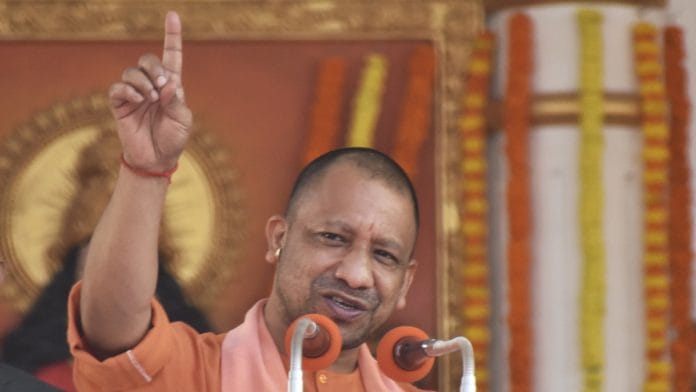There is a tea shop near the Prayag railway station in Prayagraj where students living nearby gather for tea. While sitting there, I saw a young articulate man argue that Uttar Pradesh chief minister Yogi Adityanath is going to win the elections again. Referring to caste mobilisations and analysing voters’ minds, he was able to convince the gathering. It was not a coincidental discussion. After a few hours, I saw the same man in another shop in the same locality talking about the chief minister. The mahaul that ‘Yogi will win’ is being created by a man, not through WhatsApp, Instagram or Twitter, but by ‘mahauli’.
At a time when the UP election campaign for 2022 is overpowered by online posts and trends, I introduce you to a group of local communicators who are setting the narrative in favour of certain parties and candidates on the ground. They are called ‘mahaulis’ in eastern Uttar Pradesh. But their power is often ignored by political analysts and media.
How a mahaul is created
Mahaulis are articulate, talkative and convincing. When you hear them speak, you will notice the excellent art of selective presentation of political narratives. Mahaulis sit in public spaces, mostly a chai dukan at a popular chauraha in the town, city, quasba or bazaar. You will find them in the evenings talking about elections and politics. That’s how mahaulis create a narrative that proves his candidate is the best among all and most winnable. He talks about human concerns – daya, karuna – and the politician’s supportive nature and dedication through various anecdotes. He also stands in paan shops and does baithak baji in roadside dhabas.
A mahauli is mostly described by local people as a baithakbaj (one who loves to sit with people and converse), addabaj and jankar (knowledgeable). Since mahaulis operate in the public space where mostly men sit, coming across a female mahauli is rare. Through their narratives, mahaulis carve a narrative that sits in the heart and mind of listeners. Some listeners get so convinced by the arguments made by mahaulis that they disseminate them in their own hamlets. In this way, the mahauli produces narratives that prepare the mahaul (a politically favourable atmosphere) in favour of a party or candidate.
These mahaulis are quite popular because they give advice, suggestions and opinions on daily problems. In the process, they acquire legitimacy to give opinions on larger issues – local to global, private to political. That is why people listen to their opinions about electoral politics and sometimes base their own opinion of politicians and parties on what the mahauli says. The mahaulis develop their image as non-biased even though people know their political associations.
Also read: Jobs or moksha? Modi’s Kashi corridor in Varanasi comes at a price
Mahaulis in hearts and minds
The BJP’s mahaulis will convince you Yogi Adityanath is the best chief minister so far. The Samajwadi Party Mahauli will try to prove that Akhilesh Yadav is an effective performer and able leader who can run the state. Same goes for Bahujan Samaj Party and Mayawati. I remember an incident that took place during the 2017 Uttar Pradesh assembly election. The Hindutva narrative was being reproduced by BJP mahaulis, which helped prepare the atmosphere in the favour of BJP.
If someone documents the journey of mahaulis, they will see how many of them rise from student politics to become full-time political players. Ramesh Shukla from Prayagraj too was initially a supporter of a Left-leaning student organisation. Now, he supports a local Congress leader who was once president of the student union of Allahabad. Guddu (name changed) is an effective mahauli known as ‘patrakar ji’ (journalist). He is a freelance journalist. You will find many ‘patrakar jis’ who try to write in the regional newspapers working as a mahauli before elections. Many of them just write letters to editors but call themselves patrakars. Some of them don’t work anywhere. But there is something common among all mahaulis – they gain respect in their community and earn legitimacy for their opinions.
Most of the time, the mahaulis pay money for the tea of his listeners from his own pocket. It is not clear what he gets in return from his leader or party.
In the age of social media and smartphones, mahaulis frame, create, recreate and set narratives in favour of his own party and candidates. While their narratives travel locally, they still enter the heart and mind of people and often change their political choice.
The author is Professor and Director at the G.B. Pant Social Science Institute, Allahabad. He tweets @poetbadri. Views are personal.






